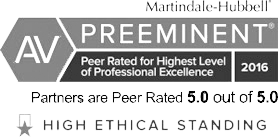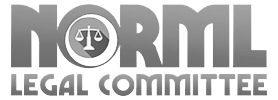
Utah has a reputation of being one of the safest states in the nation, and the data backs it up.
According to the CDC, the Beehive State has the eighth lowest rate of homicides at 2.7 per 100,000 people in 2021. That number equates to 91 total cases in one year. While that is relatively low, it doesn’t mean the state is completely risk free.
If your actions result in the death of someone else, the justice system takes your case very seriously. The punishment you receive ultimately depends on the situation, including whether it was your intent to kill, what you were doing at the time, and whether or not you were legally justified in doing so.
There are multiple types of homicide that address situations in which it was not necessarily an individual’s intent to kill. In order to understand the differences, it’s important to know two different legal terms:
Under both of these definitions, the court has to prove the situation was “a gross deviation from the standard of care than an ordinary person would exercise under all the circumstances.” In other words, if it’s reasonable that you didn’t know the risks, you might be able to avoid any kind of punishment.
The differences between these two terms can be the difference between jail and prison. If you are convicted of negligent homicide — which of course means the death was caused by negligence — that is a class A misdemeanor. The maximum punishment you can get in this situation is 364 days in jail and $2,500 in fines.
If you were convicted of manslaughter, that means the death is caused by recklessness. This is a second degree felony, which means one-to-fifteen years in prison and fines of up to $10,000.
Other types of unintentional homicide include negligently operating a vehicle resulting in death, automobile homicide involving a handheld wireless communication device while driving, child abuse homicide, and homicide by assault. All of these carry varying degrees of felony charges.
If you meant to kill someone, your punishments are generally more severe. However, there are only two basic types of homicide that fit this category:
Both of these crimes carry severe penalties. Murder is a first degree felony, but that’s not the full story. Most first degree felonies carry a minimum sentencing of five years in prison. However, in this case, you would get a minimum of 15 years. The maximum sentence is life.
For aggravated murder, prosecutors can seek the death penalty, which is considered a capital felony. However, if that doesn’t happen — maybe because you took a plea deal of some kind — you’ll be charged with first-degree murder. In this case, your sentencing will either be life in prison without parole or at least 25 years.
There are two scenarios in which you can be charged with manslaughter in Utah, even if you committed the homicide intentionally. The first is when you know someone else wants to commit suicide, and you aid that person in doing so.
The second is actually part of the law regarding murder. If you commit murder, and you thought you were legally justified to do so, but you weren’t, you can get your conviction reduced to manslaughter.
In Utah you are justified in using enough force to kill or horribly injure someone else if you reasonably believe that someone else’s use of force is going to kill you or someone else.
You are not justified if you are the initial aggressor or you provoked the other person with the intention of using their reaction as an excuse to attack. However, there is a scenario where you can be the aggressor and be justified. That is if you withdraw from the fight, clearly stating that you want to stop, but the other person continues.
In Utah, you do not have to retreat from the person attacking you in order to claim self defense.
If you are accused of homicide, the first thing you should do — before you answer any questions at all — is call a lawyer. Police can fool you into making false confessions that you do not need to make. It can be a minefield to answer anything, and that is why you’ll want someone by your side, who is well versed in the law.
In choosing an attorney in the Salt Lake City area, you’ll want someone who has a lot of experience. You can find that at Brown, Bradshaw & Moffat. Our lawyers have been in the game for over 20 years, and they would be happy to help you out!
For a free consultation, call (801) 532-5297.
Use the form above to request your free, confidential case evaluation. Our office will contact you as soon as possible to arrange for you to discuss the facts of your case with an experienced criminal defense attorney in Salt Lake City, Utah.
Note: By submitting the above form, you are requesting a free and confidential consultation with one of our attorneys to discuss the specific facts of your case. We will evaluate your unique situation and provide you with valuable information about how an attorney may be able to help you. Please do not provide any confidential or time-sensitive information using this online contact form. If your situation is urgent, please call us at (801) 532-5297. We look forward to hearing from you.
The use of this form for communication with our personnel does not establish an attorney-client relationship.



